Drought is, as they say, an insidious creature that gradually takes over the land, its people, and the gardens of the bush.
It cares not for beautiful old established gardens with years of history and sentiment. It cares not for a new garden being nurtured by a young woman, keen to make her mark and stake a claim on her patch of the farm.
It doesn’t care if that little oasis around the homestead is someone’s pride and joy or that it may be the only thing keeping a sanity intact. A drought is ruthless in its impartiality.
I remember watching an elderly lady from NSW crying during a tv interview last year because her beloved 100 years plus old orange tree had died due to the drought.
I was struck by her pain and I felt her loss.
Gardens in the bush hold hearts, memories and hope.
They are an outlet for creativity, exercise, retreat, refuge, love and faith.
Some gardens have a good supply of water while others, like my own, wait at the end of a long queue of stock for a drink. That queue gets longer once you have to add the job of carting water to the workload.
Long before a dry spell bush gardens often have already had to deal with pests and plagues. Gates left open invite cows and horses to investigate and destroy. Many must survive energetic dogs and children plus the odd football catastrophe. Finally, they’ve face enforced neglect while farm work, schooling and family obligations came first.
Whatever the size, shape and condition of a bush garden, drought does not discriminate. A garden that is affected by drought adds to the stress and heartbreak.
And you can feel so powerless and so out of control because of it.
However, gardeners can choose how they see the effects of drought on their garden and regain some power, however small, over its fate.
Drought can be a time to reassess a garden. Which plants grow well together? Which plants are thirsty beasts? Which plants thumb their noses at the lack of water and power on undaunted?
Gardeners can decide which plants to farewell and which plants to persevere with.
And gardeners can become extremely resourceful in the battle to keep the garden alive.
- Mulch is your best friend whether it be rocks, gravel, branches, old clothes, hard old cow pats, newspapers and cardboard boxes or hay if you are lucky enough.
- Plants can be dug up out of garden beds and transferred into pots to allow for easier care and maintenance.
- Plants can be sent on holidays to houses with more water than yours and retrieved at a later date.
- Cuttings can be taken and spread among fellow gardeners so that you can get a piece of Aunty Mary’s best pink geranium back when the season allows.
Some things will not survive and you won’t be able to replace them and that will hurt.
But hopefully the awful things that you have been longing to secretly poison when no one is looking will turn their toes up first. Gardens have long been a source of beauty and pain and will continue to be especially when you so want to grow a hedge of camellias in alkaline soil in Central Qld….?
There is nothing wrong with ambition and tenacity but most of us, will have through trial and error, plants in our garden that are suited to our soil types and conditions because we are practical.
We have all had to adapt to a lot of things in our lives and in our gardens previously. Drought, unfortunately, is just another thing to adapt to.
It is best done with family and friends and with a good sense of humour if you can find some. And don’t forget to salute the drought with a nice tall glass of something cold and the rude finger. Wishing you all a very fine adaptation and a wet finish to this horrible droughty time xxx

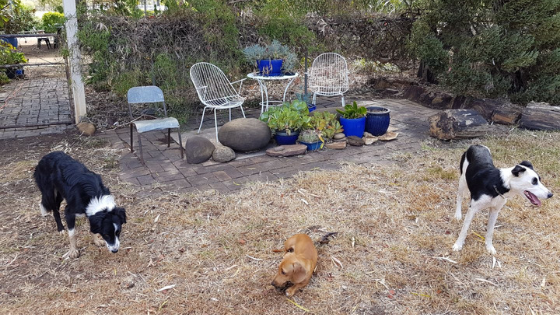
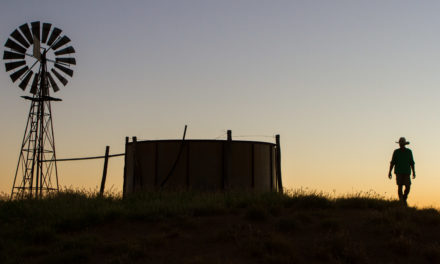
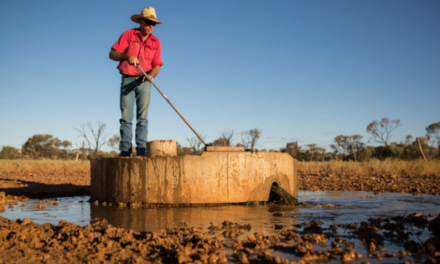
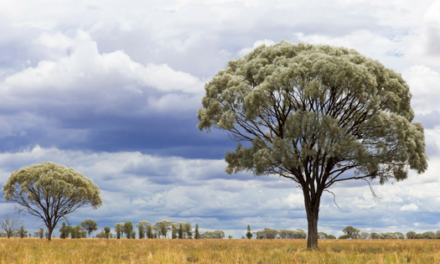
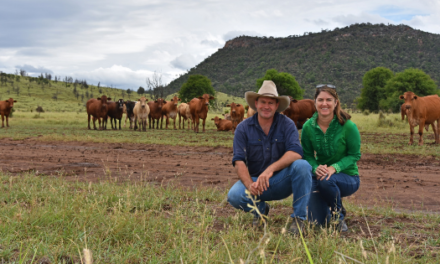
Great article & words of wisdom We all need a garden spot to sit in with a cuppa wine family pets & friends
Drought really can read havoc on a garden. Sometimes I feel lucky to live where I do because, even though it doesn’t rain loads, it also doesn’t get crazy hot.
I do appreciate your tips on trying to get through a drought though. It shows just how challenging gardening can be for some, and how it really is a labour of love.